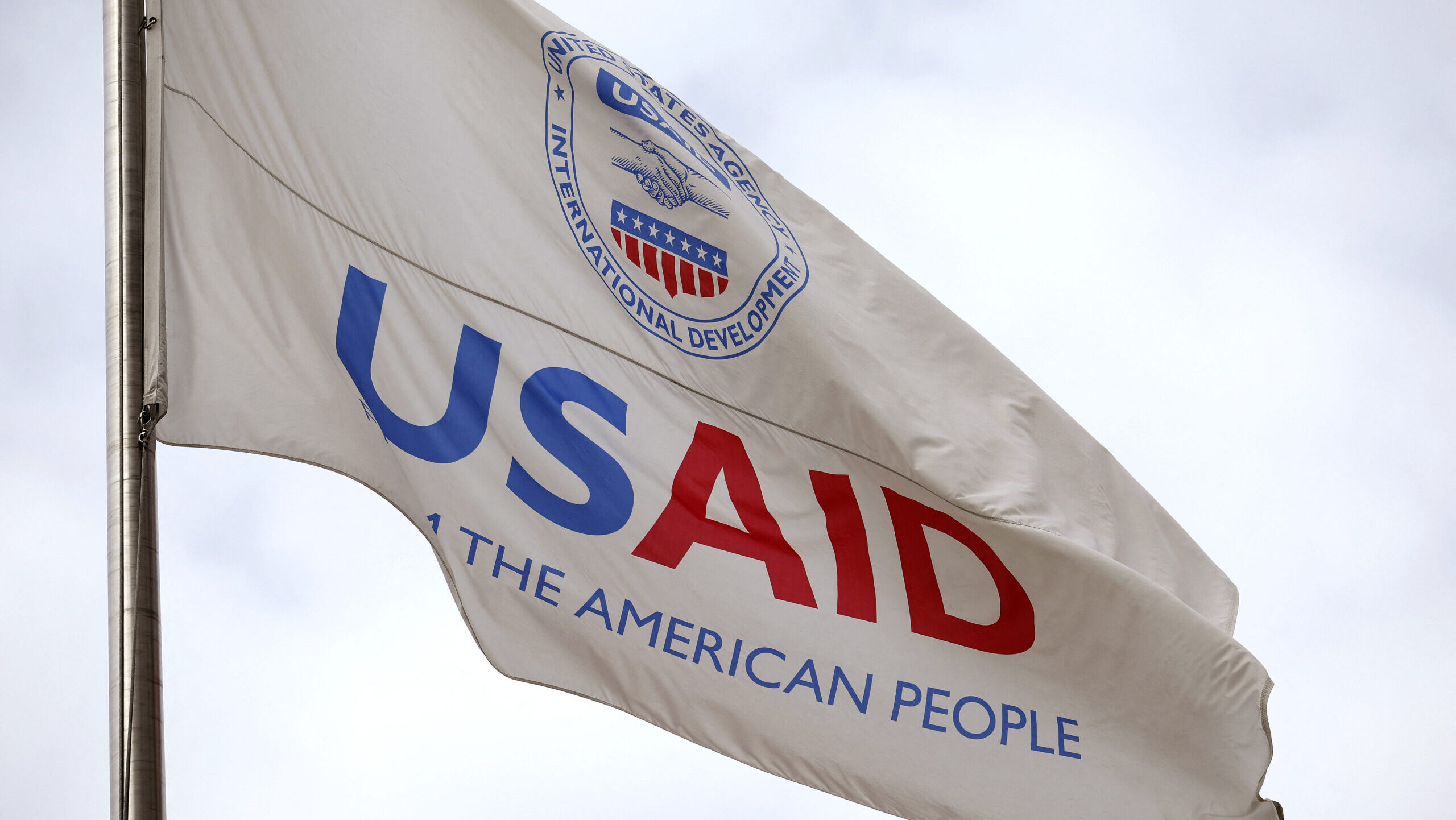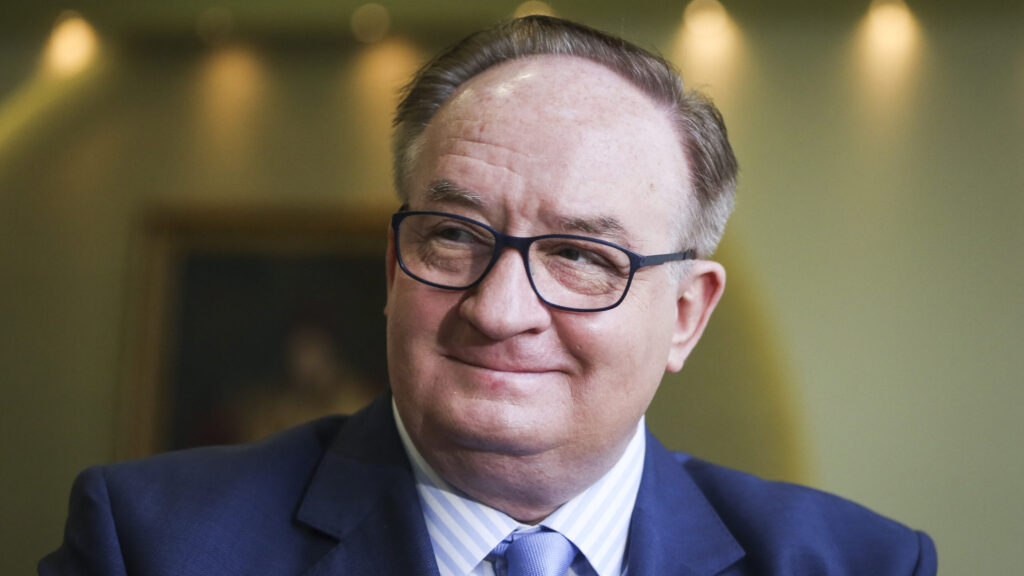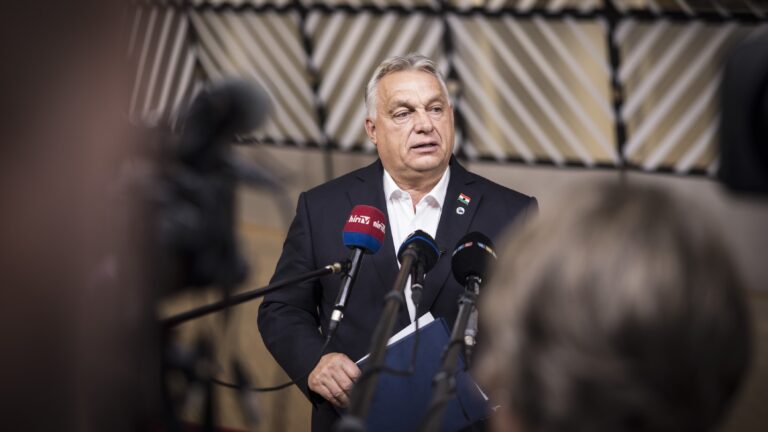Donald Trump’s administration is continuing to ‘drain the swamp’ in Washington as it moves closer to defunding or reorganizing one of the United States’ most significant foreign interference tools, the US Agency for International Development (USAID). After officials from Elon Musk’s Department for Government Efficiency (DOGE) were denied access to USAID’s Washington headquarters and prevented from reviewing sensitive data, the agency’s security leadership was removed by Trump. During the crackdown, Musk’s team made USAID’s foreign assistance allocations publicly accessible, exposing some of the agency’s biggest secrets, including the extent of US interference disguised as foreign aid in Hungary.
After being appointed acting director of USAID, Secretary of State Marco Rubio stated: ‘We had no choice but to bring this thing [USAID] under control.’ Rubio, who previously served on the Senate Foreign Relations Committee, added: ‘It’s a completely unresponsive agency. It’s supposed to follow the State Department’s policy directives, yet it refuses to do so.’ He further argued that under Democratic leadership, USAID’s officials ‘don’t consider that they work for the US; they think they’re a global entity, and their master is the globe, not the United States. That’s not what the statute says, and that’s not sustainable.’
Charlie Kirk on X (formerly Twitter): “Secretary of State Marco Rubio just absolutely RIPPED the deep state slush fund known as USAID: “I am the acting director of USAID.””My frustrations with USAID goes back to my time in Congress. It’s a completely unresponsive agency, it’s supposed to respond to policy… pic.twitter.com/xKO8fmTYwS / X”
Secretary of State Marco Rubio just absolutely RIPPED the deep state slush fund known as USAID: “I am the acting director of USAID.””My frustrations with USAID goes back to my time in Congress. It’s a completely unresponsive agency, it’s supposed to respond to policy… pic.twitter.com/xKO8fmTYwS
Elon Musk has previously addressed the issue of USAID in multiple posts on X, claiming, among other things, that the agency ‘needs to die.’ ‘USAID is a criminal organization,’ the DOGE co-chair wrote. According to Musk, Trump has agreed with him on shutting the agency down. However, Rubio suggested that another option could be reorganizing and reforming USAID to better align it with the administration’s ‘America First’ policy.
Elon Musk on X (formerly Twitter): “USAID is a criminal organization. Time for it to die. https://t.co/sWYy6fyt1k / X”
USAID is a criminal organization. Time for it to die. https://t.co/sWYy6fyt1k
Millions for Promoting Woke Agenda
USAID, established in 1961 by US President John F Kennedy, is responsible for distributing the majority of US foreign assistance worldwide. However, due to its close cooperation with the CIA, the agency is widely seen as an extended arm of American intelligence, operating alongside the US government-funded NGO, the National Endowment for Democracy (NED). A significant number of countries have banned USAID from operating on their soil due to its repeated interference attempts under the guise of foreign aid.
Upon taking office, Trump froze nearly all foreign assistance for a 90-day review period, which is currently ongoing. Meanwhile, the administration continues to disclose findings on the questionable schemes USAID has used and how the agency has spent US taxpayers’ money. According to White House Press Secretary Karoline Leavitt, many of these expenditures reflected ‘insane priorities’ primarily aimed at promoting a woke, progressive agenda in foreign countries. During a press conference, she listed several examples:
- $1.5 million to advance diversity, equity, and inclusion (DEI) in Serbian workplaces;
- $70,000 for the production of a DEI-themed musical in Ireland;
- $47,000 for a trans opera in Colombia;
- $32,000 for a trans comic book in Peru.
DOGE NEWS- Department of Government Efficiency on X (formerly Twitter): “Karoline Leavitt got asked why USAID is getting shut down, & she STUNNED them by giving them a lecture about where the money’s been going- $1.5 million to advance DEI in Serbia workplaces- $70,000 for the production of a DEI musical in Ireland- $47,000 for a trans opera in… pic.twitter.com/4W3Hn7K9we / X”
Karoline Leavitt got asked why USAID is getting shut down, & she STUNNED them by giving them a lecture about where the money’s been going- $1.5 million to advance DEI in Serbia workplaces- $70,000 for the production of a DEI musical in Ireland- $47,000 for a trans opera in… pic.twitter.com/4W3Hn7K9we
However, the revelations go even further. According to newly released data, Anthony Fauci’s National Institute of Allergy and Infectious Diseases (NIAID), in cooperation with USAID, allocated over $40 million in US taxpayer funds to a scientist in Wuhan who was conducting research on ‘bat coronavirus emergence’. These grants were issued in 2019—the same year the Covid-19 pandemic erupted.
Chief Nerd on X (formerly Twitter): “Let me get this straight. Fauci’s NIAID and @USAID sent over $40M in U.S. taxpayer “support” to a scientist in Wuhan who was working on “bat coronavirus emergence” research, who also became “patient zero” for COVID-19? And the completion date for that funding was … in 2019???… pic.twitter.com/FJF92pcmp1 / X”
Let me get this straight. Fauci’s NIAID and @USAID sent over $40M in U.S. taxpayer “support” to a scientist in Wuhan who was working on “bat coronavirus emergence” research, who also became “patient zero” for COVID-19? And the completion date for that funding was … in 2019???… pic.twitter.com/FJF92pcmp1
From LGBTQ+ to Migration
Trump’s team has also made the past years’ detailed allocation of foreign assistance by various US departments and agencies publicly accessible on www.usaspending.gov.
USAID has a long history of meddling in Hungarian politics, funding NGOs and media outlets critical of the government. According to a national intelligence investigation launched afterwards, USAID and NED were part of a scheme in 2022 that funnelled millions of US taxpayer dollars to the Hungarian opposition during the parliamentary election campaign. In 2023 USAID Administrator Samantha Power visited Hungary to meet with opposition figures and journalists, a move she described as an effort to ‘make a change’ in the country—a statement that some interpreted as an admission of attempts to organize a colour revolution in Hungary.
Golden Advice 🇺🇲🇺🇲🇺🇲 on X (formerly Twitter): “More USAID shenanigans… In early 2023, one year after @PM_ViktorOrban was elected, USAID tried to seed a color revolution in Hungary. Here is Samantha Power openly discussing it. More here… https://t.co/pLeS1UJc1v via @thelastrefuge2 pic.twitter.com/I04R0ecEVs / X”
More USAID shenanigans… In early 2023, one year after @PM_ViktorOrban was elected, USAID tried to seed a color revolution in Hungary. Here is Samantha Power openly discussing it. More here… https://t.co/pLeS1UJc1v via @thelastrefuge2 pic.twitter.com/I04R0ecEVs
In the remainder of this article, we provide a detailed list of Hungarian recipients of US foreign assistance in recent years, with a primary focus on organizations and programmes funded for foreign policy or ideological reasons.
The total amount of all grants allocated to Hungary stands at $842.7 million. This includes 2,985 contracts, 424 grants, 1,198 direct payments, 17 loans, and 52 other items. The largest contributor is the Social Security Administration (SSA), which provided over $426 million, while the Department of State allocated nearly $100 million in grants to Hungary. USAID is also among the top five, distributing $18.53 million in funding.
Here are some of the most interesting recipients, from the collection of Mandiner:
- Freedom House – Awarded $1.925 million to operate in Hungary from 2019 to 2028 under the Nations in Transit programme, primarily supporting Zsuzsanna Végh’s reporting. Végh is listed on the Freedom House website as a critic of the Orbán government’s ‘illiberal’ or ‘authoritarian’ trajectory and has authored annual Nations in Transit reports on Hungary.
- Transparency International Hungary – Received three grants from the US State Department:
- $19,000 for increasing participatory democracy in selected cities
- $9,000 for training investigative journalists
- $4,000+ for unexpected expenses.
- Hungarian Helsinki Committee – Received three grants totaling $32,400:
- $16,000 to commemorate the 2019 anniversary of regime change
- $11,700 to encourage youth participation in ‘defending individual freedoms and democracy’
- $4,700 to establish ‘equal treatment clinics’.
- Hungarian Civil Liberties Union – Received $6,000 in 2017–2018 to support the disabled community.
- Amnesty International Hungary – Received one grant in 2019–2020 for the ‘Click for Right’ programme, which aimed to improve media literacy; however, the grant amount is listed as $0.
- Háttér Society – Received $14,000 from the State Department between 2020 and 2022 to document ‘how the Hungarian LGBTQ community has evolved and changed in the twentieth century.’
- Rainbow Mission Foundation – Received $3,400 in 2010 to support Pride Week.
- Subjective Values Foundation – Received 17 grants totalling $74,000 from the US State Department between 2010 and 2024 for projects combating racial prejudice and supporting migrants.
- Open Europe Association – Received two grants:
- $13,000 for a storytelling project on regime change and European integration
- $10,000 for ‘Eurologus—independent EU policy-related media reporting from Brussels to the Hungarian media market’ (likely referring to the Eurológus blog).
- Hungarian Europe Society – Received $13,000 in 2022 to organize a conference on the future of democracy and the liberal world order, focusing on the rule of law, human rights, minority rights, transparency, and media pluralism.
- Independent Journalists Foundation – Received three grants:
- $25,000 in 2018–2019 to train journalists under the US State Department’s Public Diplomacy Programs, a funding agency that supports US foreign policy
- $19,000 in 2020–2021 to organize a social dialogue on the impact of 1945
- $18,000 in 2019–2020 to commemorate 1989
- According to company records, the foundation last filed its financial statements in 2022 and currently has only one board member.
- Menedék – Hungarian Association for Migrants – Received two grants:
- $23,000 in 2022–2023 to support the integration of migrants in schools
- $20,000 in 2022–2023 for a programme aimed at reducing ‘social isolation’.
- Alternative Communities Association – Received $18,000 in 2021–2022 for a democracy-related project or for ‘implementing projects of the recipient’.
- Equilibrium Institute – Received two grants:
- $15,000
- $10,000.
- Non-profit Information and Training Center (NIOK) Foundation – Received two grants from the State Department:
- $14,000 in 2018 to promote ‘the culture of giving’ and support fundraising campaigns for NGOs
- $10,000 to provide Hungarian NGOs with up-to-date information on communications, fundraising, and NGO management.
Related articles:







